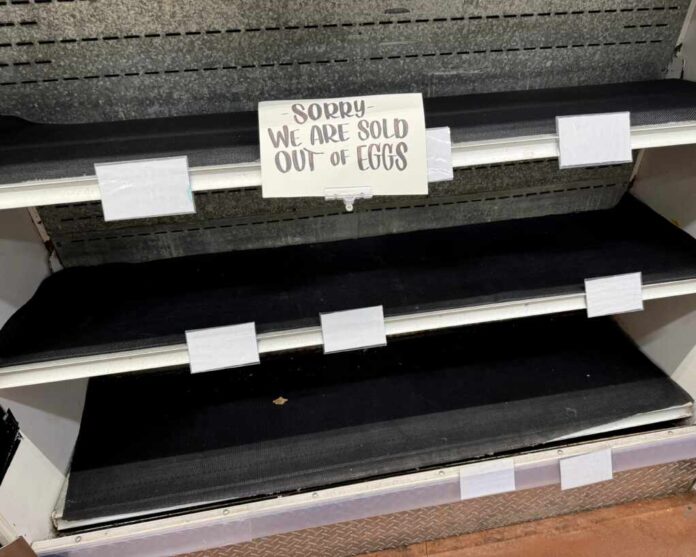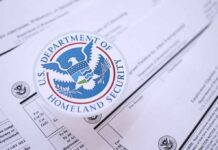
Grocery stores across the country are rationing egg sales as supply shortages intensify, forcing retailers to impose limits on how many cartons customers can buy. Costco, Trader Joe’s, and Whole Foods are among the chains restricting purchases after struggling to keep shelves stocked.
The shortages stem from mass poultry culling efforts tied to avian flu. Since 2022, more than 148 million birds have been slaughtered as part of government-mandated containment measures. With millions of egg-laying hens removed from the supply chain, grocery stores are now facing major disruptions.
Retailers have taken steps to control panic buying. Trader Joe’s has set a one-dozen-per-customer limit, while Whole Foods has placed a three-carton cap. Sprouts Farmers Market has restricted purchases to four dozen per visit, warning that supply issues are likely to continue.
In Missouri and Illinois, at least 60 stores have adopted similar restrictions. Customers in these states have reported bare shelves and long lines as shoppers rush to grab eggs before they are gone. Videos circulating online show shoppers clearing out entire sections of eggs within minutes of restocking.
Egg prices have soared, reaching an average of $3.82 per dozen—more than double what they were in 2020. Some stores have reported prices as high as $9 per carton, forcing restaurants like Waffle House to add a 50-cent surcharge per egg to offset costs.
Federal officials have warned that egg prices could continue rising, with an additional 20% increase expected this year. Despite the strain on consumers, the government has not adjusted its strategy, continuing mass poultry euthanizations as its primary method to control bird flu outbreaks.

























